- Events
- Research
- HILL
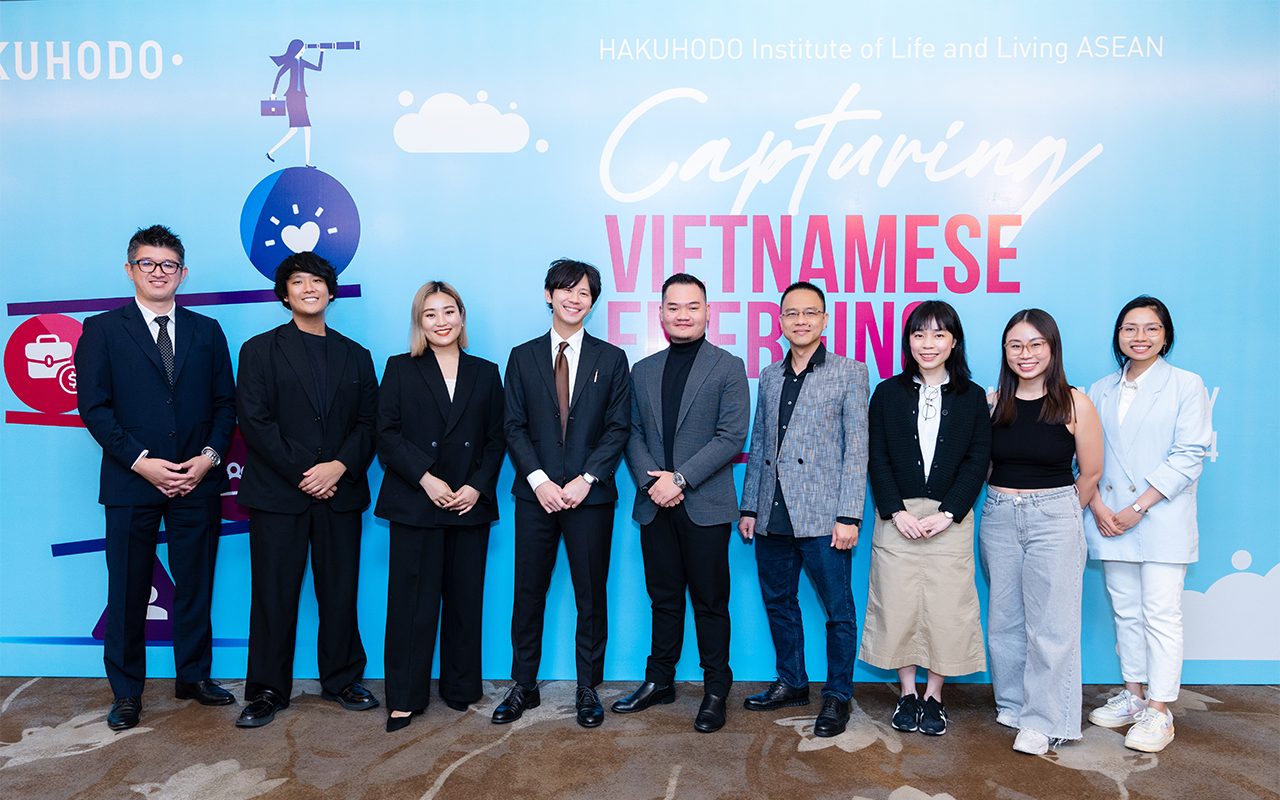
Hakuhodo Institute of Life and Living (HILL) ASEAN’s Vietnam Group has developed a reputation for insightful and in-depth research on lifestyles and consumer behavior. Findings of the latest project—Capturing the Vietnamese Emerging Affluent—have just been released. HILL is a think tank that specializes in researching sei-katsu-sha*, Hakuhodo’s term for the holistic person. The first institute was established in Tokyo in 1981, followed by HILL Shanghai in China in 2012 and HILL ASEAN in Bangkok, Thailand in 2014.
Sitting between the middle and upper sectors of society, the Vietnamese Emerging Affluent are a cohort with immense potential for brands. Using an integrated approach comprised of extensive surveys, data analysis, home visits and observations, the team at HILL delved into the mindset and aspirations of this fascinating social sector. Huy Thanh Gia Pham, Thao Kim Thanh Nguyen and Amane Yokoyama, three members of the Hakuhodo Vietnam Group, talk about the key findings of their research and why the Vietnamese Emerging Affluent are so important to brands.
Who are the Emerging Affluent?
HUY: “Emerging Affluent” is a newly-coined term from HILL ASEAN. To define who they are, we set the monthly income ranges for each ASEAN country while taking their economic situations into consideration. In Vietnam, we define Emerging Affluent as those whose monthly salary ranges from 22,500,000 VND to 60,000,000 VND, and who have also risen from the middle class through their own efforts. In short, they are positioned as “upper middle class” in Vietnam.
Why do the Emerging Affluent in Vietnam matter?
THAO: As Huy mentioned, the Vietnamese Emerging Affluent are individuals positioned between the upper and middle class. We discovered that Emerging Affluent have the potential to become the next influential role models for the entire middle class and beyond. Furthermore, the number of people in this new social class is growing. Therefore, it is crucial for us to study them in order to understand how people and society in Vietnam are evolving.
The freedom to move forward
Tell us about the family backgrounds of the Vietnamese Emerging Affluent.
AMANE: Vietnamese Emerging Affluent are more likely to come from financially tough situations. According to our data, more than 20% said that they were born into difficult economic situations and were very poor; this percentage is higher than those in the upper and middle classes. With that kind of background, the Vietnamese Emerging Affluent are seeking one thing: Freedom. This word was frequently mentioned by Emerging Affluent during our home-visit research, and we believe this passion for Freedom is a key trigger that drives them forward.
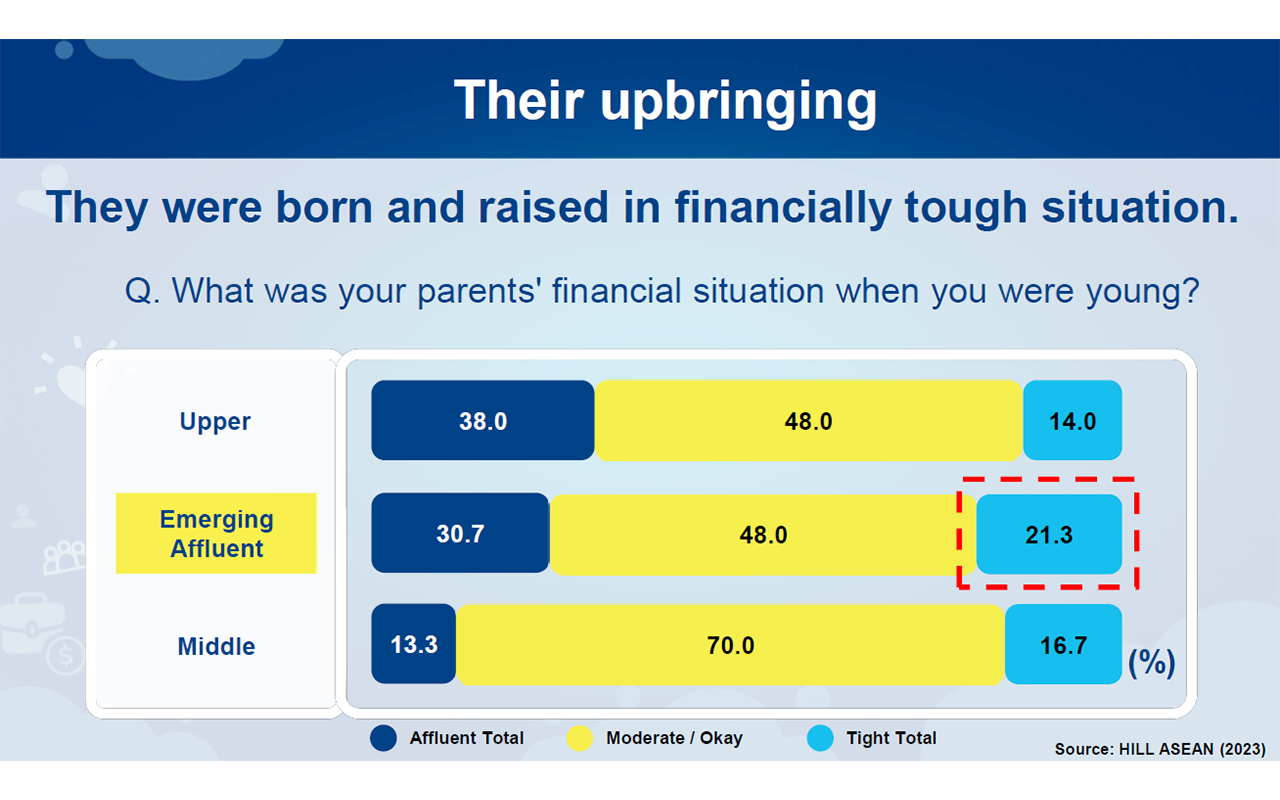
How is this concept of Freedom characterized by the Vietnamese Emerging Affluent?
HUY: At Hakuhodo HILL Vietnam we’ve defined “Freedom” as Expansion, Enabling and Recognition. To break it down:
—Expansion: During our research we met a lot of Vietnamese Emerging Affluent who heavily invest in studying and socializing. They’re keen to expand their capabilities and opportunities to continue their self-development.
—Enabling: Family means a lot to Vietnamese Emerging Affluent, and the value of Freedom lies in their ability to support their families, both financially and in other aspects.
—Recognition: They view Freedom as the ability to express their own progress and status; a sense of confirmation from others brings them to the next stage.
Why do the Vietnamese Emerging Affluent want to expand their opportunities?
AMANE: We believe there are three reasons behind this:
—The first is that they have a sense that they can be rewarded by working hard. With Vietnam’s booming economy and society, the system promises to reward anyone with strong self-growth.
—The second is that new experiences attract more new experiences. By having access to so much more in the process of their development, from entertainment to education, Vietnamese Emerging Affluent come to treasure the experiences available to them.
—Lastly, many Vietnamese Emerging Affluent have been striving very hard to earn their current status. This drives them to keep on going forward, fueled by a fear of falling back.
What is the role of luxury for the Vietnamese Emerging Affluent?
THAO: Luxury doesn’t equate to “high-end brands”—being able to make their family happy means luxury for them. They always put their family first, and the Vietnamese Emerging Affluent are more willing to invest in their children’s education in comparison to other social segments.
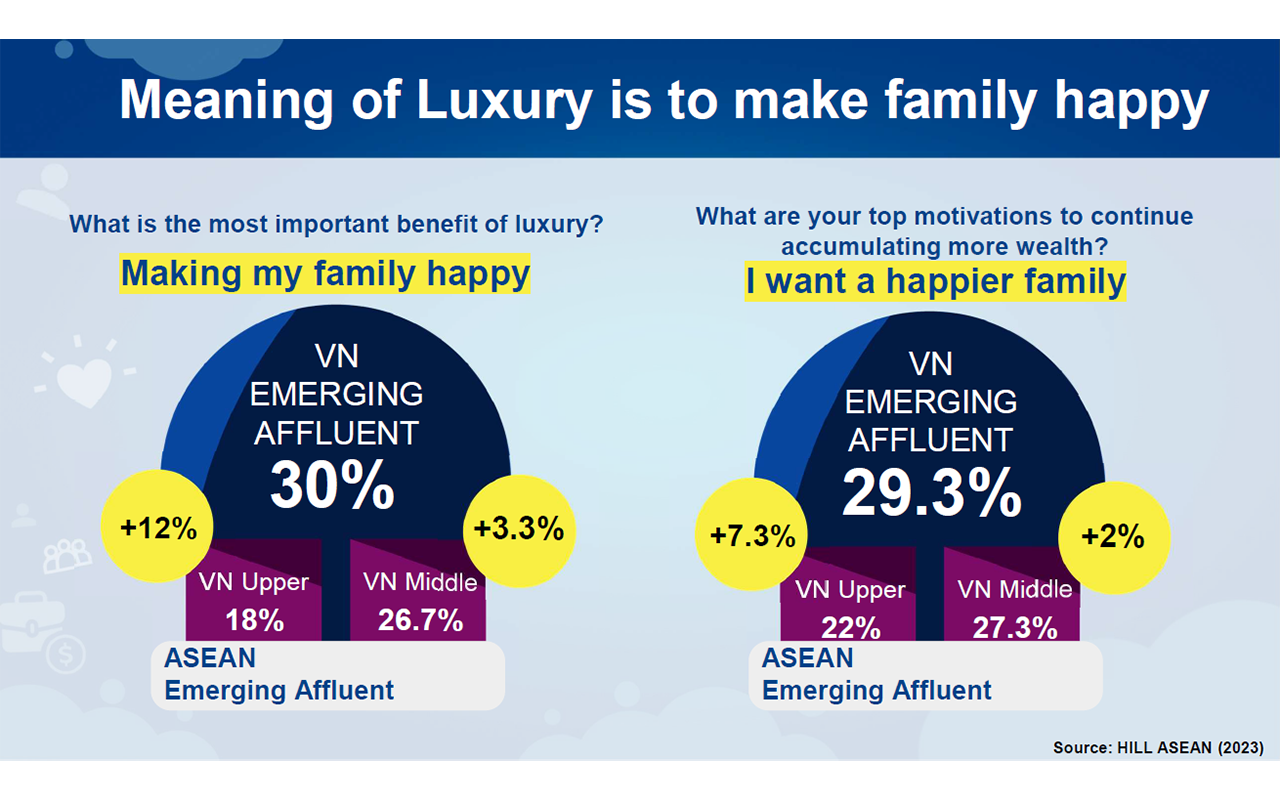
Tell us about the “Spiral of Freedom Expansion” from the research.
HUY: As noted, we identified three elements of Freedom for Vietnamese Emerging Affluent: To expand with no limits on their life (Expansion), to be capable of making family happy (Enabling), and to show one’s own progress and status (Recognition). Through our research we can see that these three factors are closely interconnected. By expanding their capability and experiences they acquire money and wealth, which enable others—particularly their families—to do more and feel happier. In turn, this eventually brings them a sense of being recognized by others and so they can continue to strive to continue their self-growth. We call this the “Spiral of Freedom Expansion.”
Engaging with the Emerging Affluent in Vietnam
Were there differences between the Emerging Affluent in Ho Chih Minh City (HCMC) and Hanoi?
THAO: We found some fascinating differences between the two largest cities in Vietnam from three main perspectives:
—The key performance indicators (KPIs) the Emerging Affluent seek are different. People in Hanoi are mainly local residents with similar backgrounds, which leads to them having KPIs of shared success. However, people in HCMC come from various regions, which results in them seeking success through diversity as their KPIs.
—From our viewpoint, Hanoi’s status as the capital city breeds a culture of academic competition, driven by government institutions and traditional companies. In contrast, HCMC’s economic hub status encourages business competition among residents, who are striving to be recognized as unique.
—Hanoi’s Emerging Affluent adopt a long-term mindset, valuing historical continuity. On the other hand, in HCMC they focus on the present and rapid change leads to short-term goals, reflecting the economic dynamic of the city.
What do the HILL Vietnam findings on the Emerging Affluent mean for brands?
AMANE: Through our analysis and observation, we have learned that the Vietnamese Emerging Affluent have a strong potential to be the core of the Vietnamese market in the near future, and so it is very important to consider them. As noted, Freedom is a keyword for defining the Vietnamese Emerging Affluent and we will be focusing on how brands can effectively interact with them by advocating for specific freedoms.
What solutions can Hakuhodo provide in relation to the Emerging Affluent?
AMANE: In order for brands to engage with the Emerging Affluent in Vietnam as a new social class, we suggest the following:
—Engage by offering an integrated makeover, not just a product or service: The Vietnamese Emerging Affluent is eager to expand their capabilities and opportunities for self-development. Integrated schemes, such as workshops or programs that allow them to learn and grow, will be appealing to this segment.
—Provide “VIF-experiences,” whereby VIF means “Very Important Family”: They are not just seeking “VIP treatment,” but rather they want opportunities where they can proudly and openly showcase themselves as special families, thus creating a sense of pride and satisfaction.
—Heroize users as brand ambassadors and brand content assets: Brands can encourage Emerging Affluent users by featuring the user and their lifestyle as brand content.
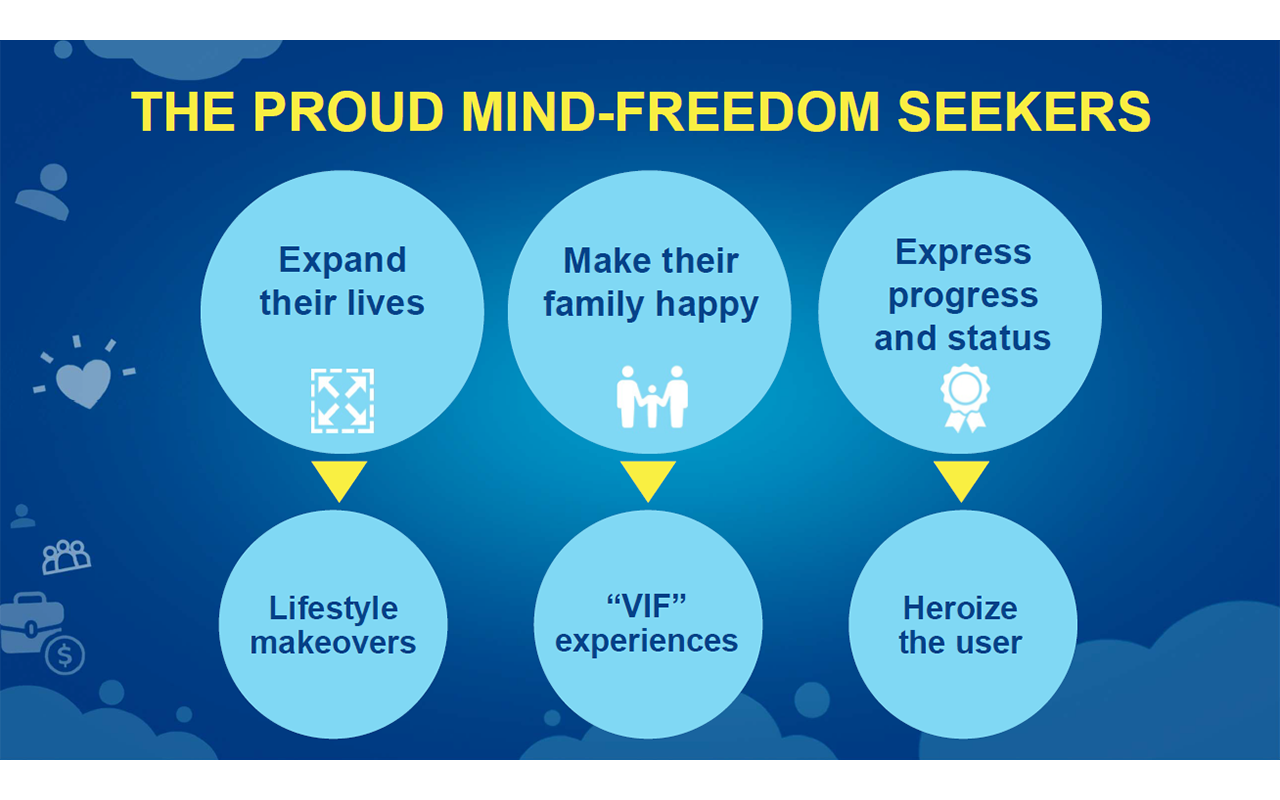
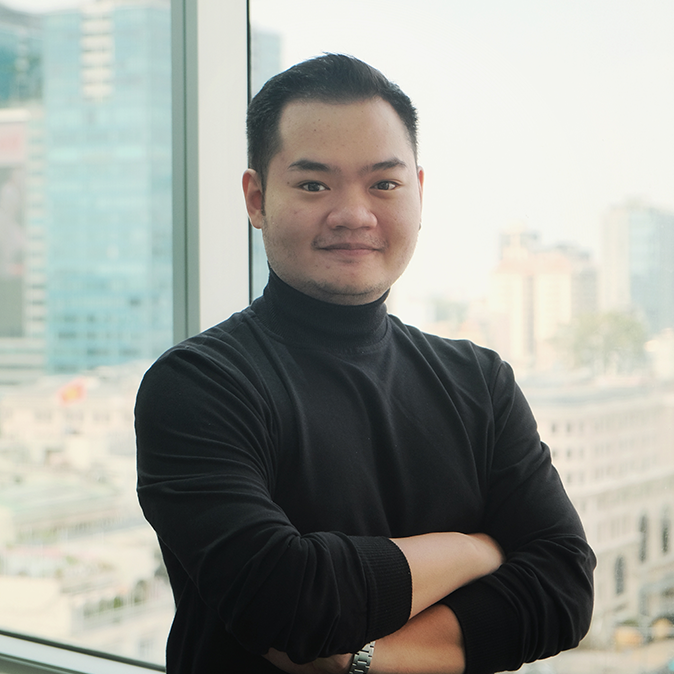
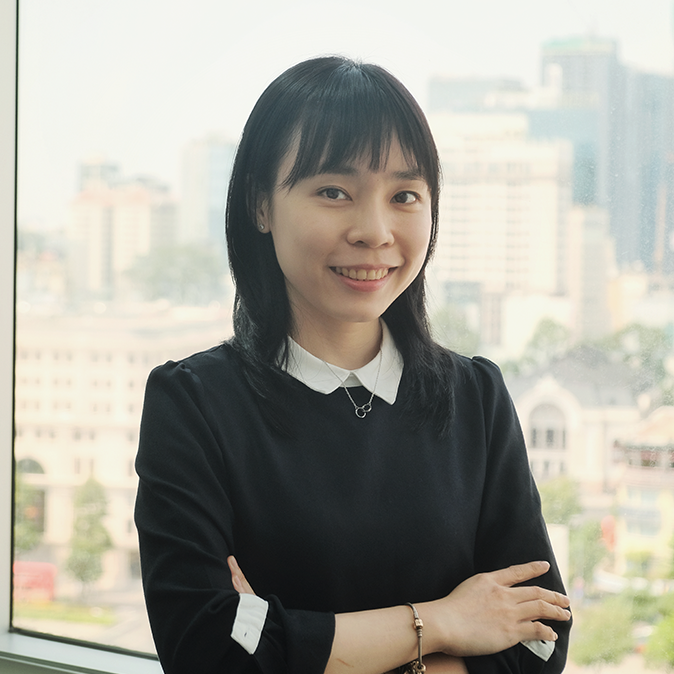
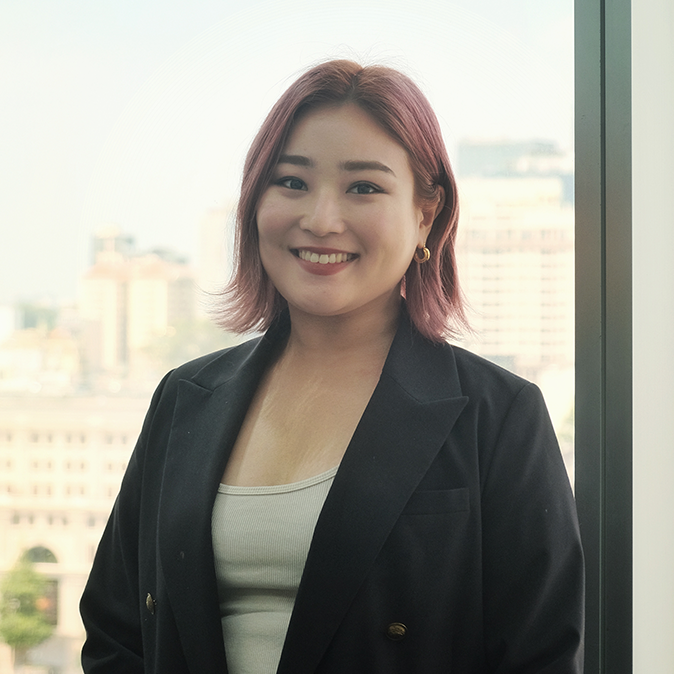
* “Sei-katsu-sha” is a term we use to describe people not simply as consumers, but as fully rounded individuals with their own lifestyles, aspirations and dreams.















